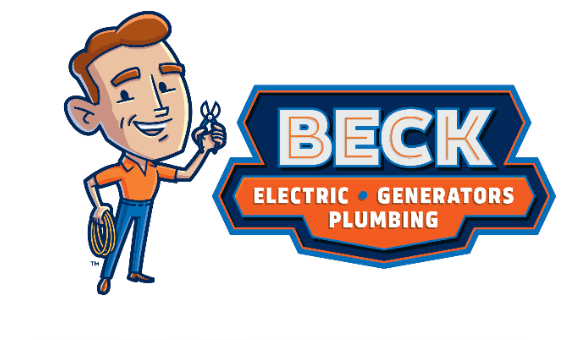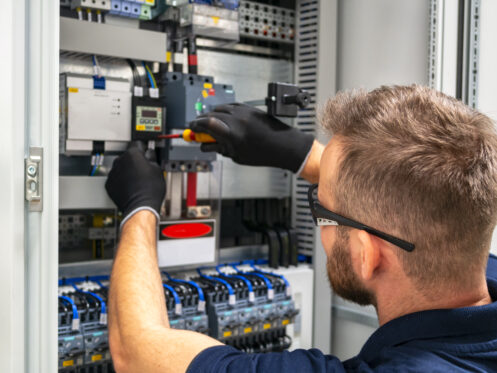The terminology used in the world of electrical systems can be confusing at times. Clarifying the terms, especially for those needing an in-depth understanding of electrical infrastructures, can simplify common issues and clear up misconceptions. One common source of confusion pertains to breaker boxes and electrical panels. People often use these terms interchangeably, but they refer to different things. We explain the differences between breaker boxes and electrical panels and explore their roles and features to discover how they support electric efficiency and security.
Breaker Boxes: The Guardians of Electrical Circuits
Breaker boxes are vital components of electrical systems that protect the fuses of the electrical systems within homes and commercial establishments. These compact metal boxes house circuit breakers, which control and monitor the flow of current. Circuit breakers respond to surges or other electrical problems by quickly cutting off the current, preventing damage to equipment and electrical fires.
Breaker boxes are functional and flexible enough for circuit management to accommodate differing power demands. The primary function of a breaker box is to protect the circuits, but it does more than that. For example, breaker boxes support electrical safety and are designed to follow all established standards and codes.
To keep your electrical system reliable and sustainable, you need a functional, updated breaker box. Because of this, we recommend periodic assessments and updates as needed. Considering the safety and security of primary circuit breakers ensures the safety, efficiency, and service life of your property’s electrical systems.
Components and Functionality of Breaker Boxes
The breaker boxes consist of three major parts: the circuit breakers, bus bars, and the main breaker. Circuit breakers are switches built to open automatically and cut off current flow in the case of abnormal flow, preventing electrical fires and other safety hazards. The bus bars are metallic strips or bars used to carry and distribute the current to all the circuits connected to the breaker box. The main breaker, which might also be located outside of the house, controls the flow of electricity to the house.
The Role of the Circuit Breakers
Circuit breakers are primary devices for protecting electrical circuits from damages brought about by the current overload. In the case of an overloaded circuit or a short circuit, the circuit breaker trips, and the supply of electricity to that circuit is closed. This protects your appliances and prevents electrical fires. The main breaker can be switched off in case of an electrical emergency.
Electrical Panels: The Nerve Center of Electrical Distribution
Electrical panels can be considered the central switchboard for distributing electric energy in the building. From circuit breakers to fuses, meters, and switches, the essential components handle and manage the electricity course within the building. Indispensable for safety and efficiency, they are the panels in charge of power distribution. They protect against electrical hazards and facilitate maintenance and troubleshooting. The nervous system of electrical systems, and electrical panels play a pivotal role in the assurance of reliable and uninterrupted flow of electricity to meet the diverse needs of homes, businesses, and industries.
The Difference Between the Breaker Box and Electrical Panels
The major difference between breaker boxes and electrical panels is that the first serves a specific limited area while the latter covers a more extensive electrical supply system. A service panel is a part of the larger panel box. It isolates the distribution of electrical circuits and the circuit protection afforded by the circuit breakers. On the other hand, an electrical panel involves more components and functions above circuit protection.
Safety Considerations and Maintenance
Both breaker boxes and electrical panels are essential for the safety and operational use of a building’s electrical system. They must be appropriately installed, inspected routinely, and maintained periodically to ensure safety and reduce the risk of hazards such as fire, shock, electrocution, and equipment damage.
Compliance with the local construction codes and regulations is equally important when installing or changing electrical panels and breaker boxes. Hiring a qualified electrician to conduct these tasks is the best way to ensure all safety standards are met and prevent such risks as possible installation failure.
Contact Us Today
To ensure safety and efficiency, plan for routine maintenance of your electrical systems. Contact the competent and experienced team at Beck Electric, Generators & Plumbing for all your electrical needs, including wiring, rewiring, and installing breaker boxes, and electrical panels. Do not let an electric problem occur before you ensure you have measures/devices to protect your home or business. Contact our professionals today and schedule your consultation. With us, your electrical system will be in good hands.






